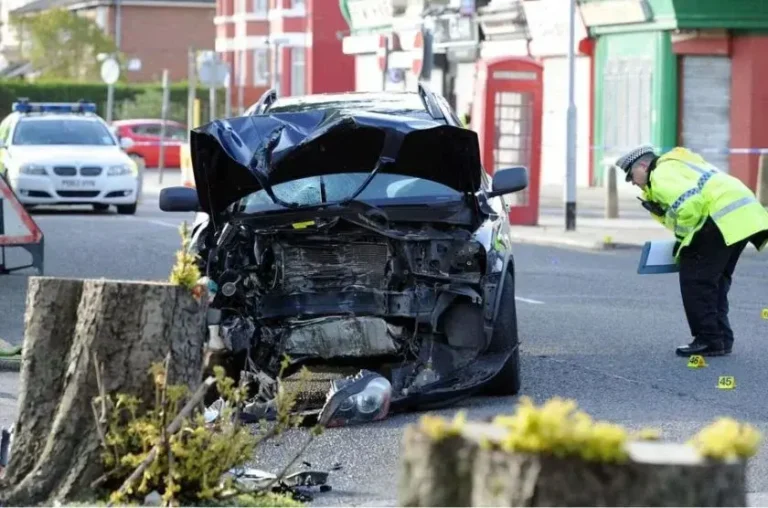Pastor Chris Hodges Scandal: Truth Unveiled
The religious community in Alabama and beyond was shaken in 2020 when news of the Pastor Chris Hodges scandal broke out. This controversy surrounding the founder and senior pastor of the Church of the Highlands, one of the largest megachurches in America, sparked intense debate about the role of social media in religious leadership and the intersection of faith and politics.
Background: Who is Pastor Chris Hodges?
Before delving into the scandal, it’s crucial to understand who Pastor Chris Hodges is and his significance in the Christian community.
Chris Hodges founded the Church of the Highlands in Birmingham, Alabama, in 2001. Under his leadership, the church experienced explosive growth, becoming one of the largest congregations in the United States. Hodges is known for his charismatic preaching style and his ability to connect with a diverse audience.
Key facts about Pastor Chris Hodges:
- Founded Church of the Highlands in 2001
- Grew the church to over 60,000 weekly attendees
- Established multiple campuses across Alabama
- Authored several books on Christian living
- Respected figure in the evangelical community
The Pastor Chris Hodges Scandal Emerges
In June 2020, the Pastor Chris Hodges scandal erupted when a high school English teacher in Birmingham, Alabama, shared screenshots of Hodges’ social media activity. These images showed that Hodges had “liked” several posts by Charlie Kirk, a conservative political commentator known for his controversial statements.
The liked posts included content that many perceived as racially insensitive, particularly in the wake of the Black Lives Matter protests following George Floyd’s death. This discovery quickly gained traction on social media, leading to widespread criticism and calls for action.
Key Elements of the Controversy
The Pastor Chris Hodges scandal centered around several key issues:
- Social media conduct of religious leaders
- The intersection of faith and politics
- Racial sensitivity in religious communities
- The role of megachurches in American society
These elements combined to create a perfect storm of controversy, challenging both Hodges and his congregation to address complex issues of faith, politics, and social responsibility.
Public Reaction to the Scandal
The revelation of Pastor Chris Hodges’ social media activity sparked diverse reactions from various groups:
Church Members
Many members of the Church of the Highlands expressed shock and disappointment. Some defended Hodges, citing his years of service and positive impact on the community. Others called for greater accountability and transparency from church leadership.
Local Community
The Birmingham community, where the church is based, was divided. Some saw the scandal as evidence of underlying racial insensitivity in the church, while others viewed it as an overreaction to harmless social media activity.
Wider Christian Community
The Pastor Chris Hodges scandal sparked debate among Christians nationwide about the role of political views in church leadership and the responsibility of pastors to be mindful of their public actions.
Civil Rights Organizations
Several civil rights groups condemned Hodges’ actions, calling for concrete steps to address what they saw as systemic issues within the church.
Immediate Consequences of the Scandal
The fallout from the Pastor Chris Hodges scandal was swift and significant:
- The Birmingham Board of Education voted to end its partnership with the church, which had been providing services in local high schools.
- The Birmingham Housing Authority terminated its contract with the church for resident outreach programs.
- Church attendance reportedly declined in the immediate aftermath of the scandal.
- The church faced intense scrutiny from local and national media outlets.
These consequences highlighted the real-world impact of the controversy, extending beyond the church walls and into the wider community.
Pastor Chris Hodges’ Response
In the face of mounting criticism, Pastor Chris Hodges addressed the scandal directly:
- He issued a public apology, expressing remorse for any hurt caused by his actions.
- Hodges stated that he did not intend to be racially insensitive and affirmed his commitment to racial reconciliation.
- He pledged to listen, learn, and work towards healing within the church and the broader community.
- The church announced plans for diversity training and increased efforts to promote racial unity.
Despite these efforts, the Pastor Chris Hodges scandal continued to generate debate and discussion within religious and secular circles alike.
Broader Implications of the Scandal
The Pastor Chris Hodges scandal raised several important questions and issues:
Social Media Responsibility
The incident highlighted the need for religious leaders to be mindful of their social media activity, recognizing its potential impact on their congregations and communities.
Political Neutrality in Churches
The scandal reignited debates about the role of politics in religious institutions and whether church leaders should maintain political neutrality.
Racial Sensitivity in Religious Communities
It underscored the importance of racial sensitivity and inclusivity within religious organizations, particularly in diverse communities.
Accountability in Megachurches
The incident raised questions about accountability structures within large religious organizations and how they handle controversies involving senior leadership.
Long-Term Effects on the Church of the Highlands
In the months following the Pastor Chris Hodges scandal, the Church of the Highlands faced ongoing challenges:
- Decreased attendance at some campuses
- Loss of community partnerships
- Increased scrutiny of church policies and practices
- Efforts to rebuild trust within the local community
However, the church also implemented several initiatives aimed at addressing the issues raised by the scandal:
- Diversity and inclusion training for staff and volunteers
- Increased focus on racial reconciliation in sermons and programs
- Efforts to diversify church leadership
- Renewed commitment to community outreach and service
Lessons Learned from the Scandal
The Pastor Chris Hodges scandal offers several valuable lessons for religious leaders and organizations:
- The importance of thoughtful social media use
- The need for clear policies on political involvement
- The value of diversity and inclusion in religious communities
- The importance of swift and sincere responses to controversies
- The ongoing need for accountability and transparency in church leadership
These lessons continue to shape discussions about the role of religious institutions in modern society.
Public Opinion: One Year Later
A year after the Pastor Chris Hodges scandal, public opinion remained divided:
Supporters
Many church members and supporters believed Hodges had adequately addressed the issue and demonstrated genuine remorse and commitment to change.
Critics
Some critics maintained that the church’s response was insufficient and called for more substantial reforms.
Neutral Observers
Many in the broader community acknowledged the church’s efforts to address the issues raised by the scandal but remained cautious about long-term change.
The Role of Media in the Scandal
The media played a significant role in shaping public perception of the Pastor Chris Hodges scandal:
- Local news outlets provided extensive coverage of the initial controversy and its aftermath.
- National media picked up the story, placing it in the context of broader debates about race and religion in America.
- Social media platforms served as a forum for heated discussions and debates about the scandal.
- Christian media outlets offered perspectives from within the religious community.
The diverse media coverage highlighted the complex nature of the scandal and its wide-ranging implications.
Comparing the Scandal to Similar Incidents
The Pastor Chris Hodges scandal was not an isolated incident. Similar controversies have affected other religious leaders and organizations:
- Other megachurch pastors have faced scrutiny for their political views and social media activity.
- Some religious organizations have grappled with accusations of racial insensitivity or lack of diversity.
- The intersection of faith and politics has been a recurring source of controversy in various religious communities.
These parallels suggest that the issues raised by the Pastor Chris Hodges scandal are part of a broader conversation about the role of religious institutions in contemporary society.
The Future of Church of the Highlands
As the Church of the Highlands moves forward from the Pastor Chris Hodges scandal, several questions remain:
- How will the church continue to address issues of diversity and inclusion?
- Can it rebuild trust with the local community and regain lost partnerships?
- Will there be long-term changes in church leadership and policies?
- How will the scandal impact the church’s growth and influence in the future?
The answers to these questions will likely unfold over time, shaping the future of one of America’s largest megachurches.
Conclusion: Reflecting on the Pastor Chris Hodges Scandal
The Pastor Chris Hodges scandal serves as a stark reminder of the challenges facing religious leaders in the digital age. It highlights the delicate balance between personal beliefs, public actions, and the responsibilities of spiritual leadership.
Moreover, the controversy underscores the ongoing need for open dialogue about race, politics, and faith in religious communities. As churches and other religious institutions navigate these complex issues, incidents like the Pastor Chris Hodges scandal will likely continue to spark important conversations and drive meaningful change.
Ultimately, the long-term impact of this scandal will depend on how Pastor Hodges, the Church of the Highlands, and the broader Christian community respond to the challenges it has raised. By learning from this experience and implementing lasting changes, there is potential for growth, healing, and a more inclusive approach to faith and community.
As we move forward, it’s crucial to remember that scandals like this one, while painful, can also serve as catalysts for positive change. They remind us of the importance of accountability, the power of public discourse, and the ongoing need for empathy, understanding, and reconciliation in our diverse society.






